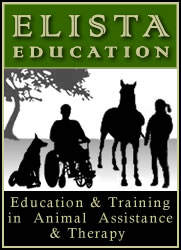INFORMATION - ANIMAL ASSISTANCE & THERAPY
Animals have been involved with humans since time began. The world would be nothing like we know it to be today should our ancestors not have allowed themselves to be associated with animals nor used them to be of benefit to them.
Animals enter every sphere of our every day lives whether we know it or not, from the toothpaste we use in the morning to the feathered pillows we sleep on at night, animals are, or at least were there somewhere in the journey that got us to this time.
Despite the many practical things animals give us, there is a whole other dimension to the associations humans have with animals. Animals have the unique ability to not just be used as product or produce but also to allow us to benefit from them; to physically be strengthened by their presence, emotionally uplifted by their comfort and mentally stimulated and challenged by their wonders.
Animal assistance and therapy, although given many names is about the ethical utilisation of live animals for the improvement of physical and mental health, physiological and psychological recovery, emotional and social well being and educational and learning enhancement.
Here is just a small sample of the things animals can do for us. Most of these have been proven, and if not, significantly anecdotally documented.
Animals Benefit People by:
- Being their seeing eyes
- Acting as hearing ears
- Giving independence
- Acting as an aid
- Giving non-judgemental support
- Decreasing stress
- Helping maintain lower blood pressure
- Reducing occurrences of Asthma
- Decreasing heart attacks
- Increasing speed of recovery
- Lifting depression
- Acting as a social catalyst to encourage friendships
- Triggering memories and allowing reminiscence
- Improving motor skills (post operative therapy or stroke patients)
- Promoting speech in therapy programmes
- Giving unconditional love
- Acting as a confidant
- Bridging the patient to therapist
- Being useful examples in talking about difficult issues
- Decreasing the impulsivity associated with conditions such as Tourette’s Syndrome
- Increasing attention and calm in hyperactivity and conditions such as ADHD
- Decreasing aggression (children and confused/frustrated elderly)
- Improving balance and co-ordination
- Increasing confidence
- Aiding social rehabilitation
- Improving self esteem
- Lessening emotional and behavioural problems
- Promoting social integration
- Reducing anxiety and promoting relaxation
- Encouraging co-operation
- Improving communication
|

